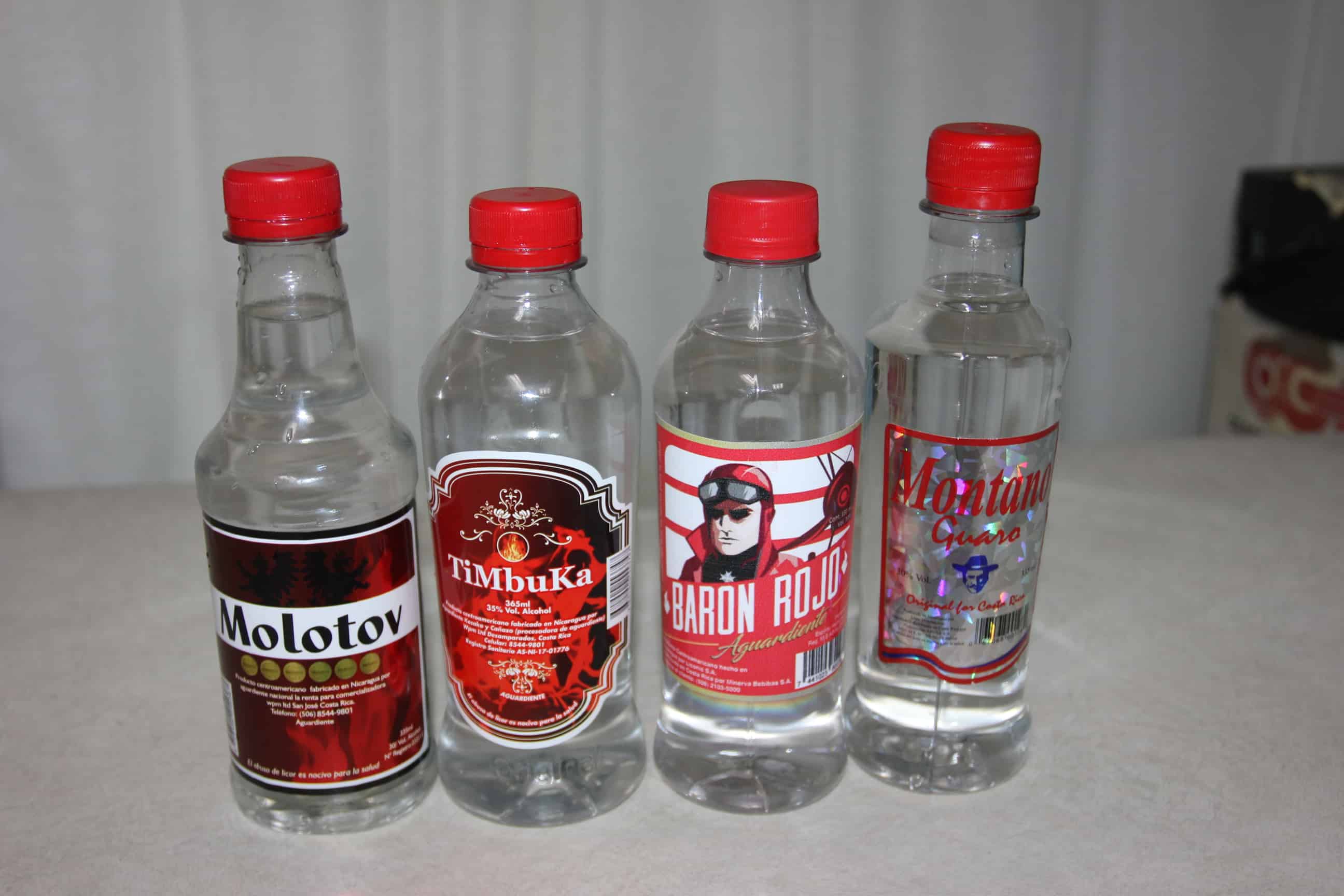As another week ends, we’re recapping the latest in the public-health alert and response to methanol-tainted alcohol that is suspected to have killed at least 20 people in Costa Rica.
The basics: Costa Rica’s Health Ministry issued a sanitary alert on July 10 warning that liquor served under several brands may have been tainted with methanol, which can be deadly if ingested in significant quantities.
What is being done?: The Health Ministry has taken the following liquor brands off the shelves in Costa Rica: Guaro Gran Apache; Aguardiente Estrella Roja; Guaro Montano; Aguardiente Barón Rojo; Aguardiente Timbuka; Aguardiente Sachetto; and Aguardiente Molotov. Do not drink alcohol sold under those brands, and report to the Health Ministry (denuncias.drpis@misalud.go.cr) if you see them being sold anywhere in Costa Rica before the sanitary alert is lifted.
Who is impacted by this?: Everyone in Costa Rica should avoid the affected brands. The U.S. Embassy issued a statement saying it is monitoring the situation and remains in contact with Costa Rican authorities. However, the U.S. Embassy said Tuesday it is “not aware of any U.S. citizen illness or death due to consuming adulterated alcohol in Costa Rica.”
The Health Ministry said methanol poisoning has primarily affected “people with chronic alcohol problems.”
Cartago is the province with the most deaths (5), followed by San José and Limón (four each).
What’s new this week?: On Monday, the Health Ministry updated to 20 the number of people they suspect to have died of methanol poisoning.
Two days later, on Wednesday, officials raided the distributors Pinares de Heredia, located in San Isidro de Coronado. There they seized wines and liquors that were “unregistered or had expired registrations,” according to the Health Ministry. Samples were sent for analysis, and nationwide operations similar to Wednesday’s search will continue.
As of Wednesday, any establishment found to be selling the aforementioned brands will have its liquor license suspended. In addition, any business that refuses inspections will have its liquor license suspended.
At least 38,000 bottles of liquor have been confiscated so far, the Health Ministry says.






